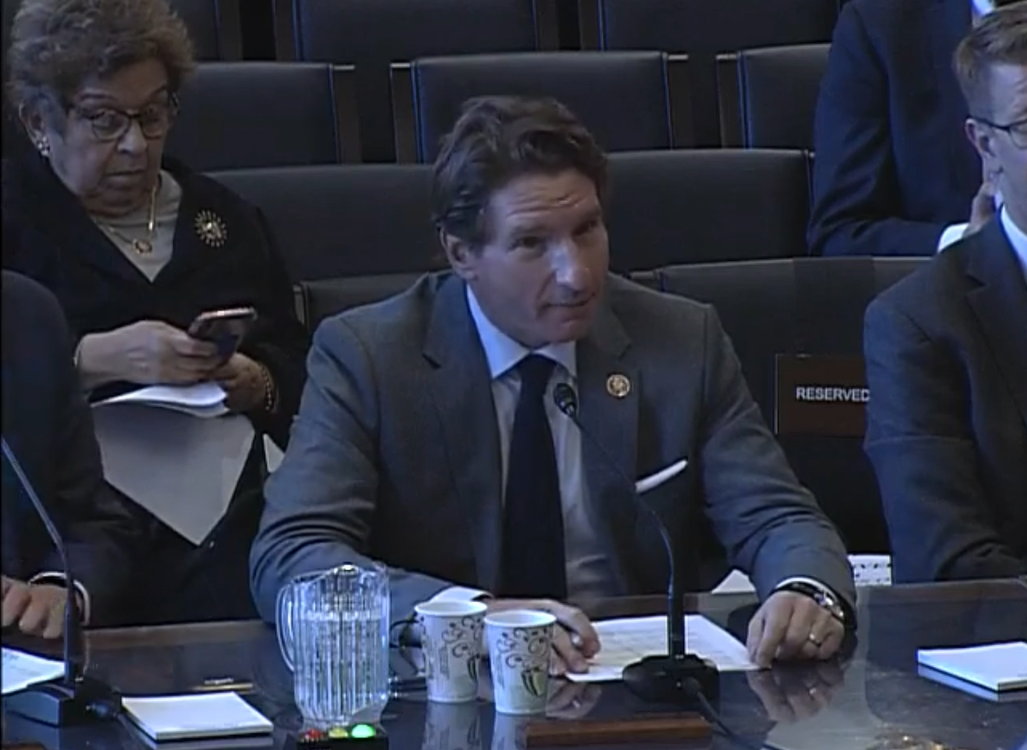Press Releases
Phillips Makes The Case For Carbon Pricing In Testimony Before Select Committee On Climate Crisis
Washington, DC,
November 14, 2019
Today, Rep. Dean Phillips (MN-03) testified before the Select Committee on the Climate Crisis about the urgent need for climate action. In Congress, Phillips is member of the New Democrat Coalition Climate Change Task Force and is a strong advocate for H.R. 763, the bipartisan Energy Innovation and Carbon Dividend Act.
Click here to watch Rep. Phillips’s testimony before the Select Committee on the Climate Crisis
Thank you for the invitation to offer testimony this afternoon on this urgent problem. Climate change is an existential threat to the health, national security, economic prosperity, and future of the American people and our planet. Our habitat is at stake. Human kind’s ability to thrive on a dramatically changing planet is in question. The Fourth National Climate Assessment and the 2018 Intergovernmental Panel on Climate Change (IPCC) have illustrated an urgent and inconvenient truth – we’re out of time. The IPCC 2018 report found that even a 1.5 degree increase would have disastrous effects to our habitat. To do our part in preventing the most drastic impacts of climate change, and to stay below a 1.5 degrees Celsius temperature increase, the United States must achieve the goals committed to at the Paris Climate Accords and attain net-zero emissions by 2050 at the latest. Limiting warming to 1.5 degrees Celsius is still possible. It is a call to action we must heed with seriousness. We’ve already seen the impacts of climate change in our state of Minnesota. The Great Lakes Region is warming faster than most other regions in the United States. Lack of action will result in higher populations exposed to water scarcity, extreme heat, and displacement from sea-level rise and severe weather events. The costs are rising and the science is clear. We cannot let the enormity of the issue overwhelm us, we must start addressing this problem immediately. That’s why I’m a member of the New Dems Climate Task Force. Our goal is to put forth an ambitious pro-climate and pro-market agenda that leverages every decarbonization solution available to advance a swift and just transition to a clean economy. We need to be focused on solutions for the climate crisis. One of the solutions I find promising is carbon pricing. I support H.R. 763, the Energy Innovation and Carbon Dividend Act – a bipartisan bill with Republican roots - which puts a fee on fossil fuels like coal, oil, and gas. Climate change has a price, and this legislation makes sure that big polluters are the ones paying it. By starting low and growing over time, it will drive down carbon pollution by incentivizing energy companies, industries, and consumers to move toward cleaner, cheaper options. The rate begins at $15 in the first year, increases by $10 each year, and is subject to further adjustments based on the progress in meeting specified emissions reduction targets. And it’s completely revenue-neutral. The money collected from the carbon fee is allocated in equal shares every month to the American people to spend as they see fit. Program costs are paid from the fees collected. In this legislation, the government does not keep any of the money from the carbon fee. Returning revenue from carbon fees directly to the people as carbon dividends—payments to every person—would transform carbon pricing from a regressive policy into a progressive one. This policy is all about incentivizing the change, which many including myself find to be the most effective way to actualize our climate goals. The price signal motivates consumers, businesses, and governments alike to invest in renewables and energy efficiency. Carbon dividends would yield a net increase in income for everyone whose carbon footprint is smaller than average. People with larger carbon footprints pull up the average, they would pay more in higher fuel expenditures than they get back in dividends, while most households, including most low-income and middle-class families, would come out ahead. In addition, a clean-energy transition will need smart regulations and public investments as well as aggressive emissions limits. Carbon pricing isn’t the only answer to the Climate Crisis but one of the most effective tools to meeting the goals of the IPCC. There are many common-sense environmental policies that we can and should pursue. However, it is true with climate issues as it is every other important policy we consider, that in order to begin making meaningful change, we must reform our government. Too many wealthy special interests have far too much control when it comes to climate policy. It is time to end the corrupting influence of special interest money in the halls of Congress and do what is right for our planet and our future. When it comes to our climate, environment, and habitat, we’re living in an era of great opportunity – and great consequence. The time to act – the time to lead - is now. ### |


